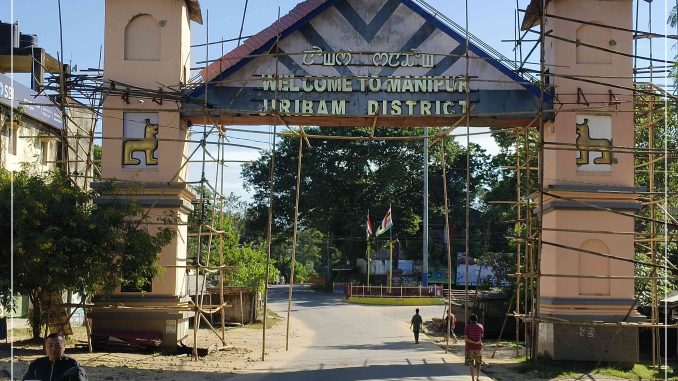
The people of Jiribam had always found solace in the serenity of their district, nestled along the western edge of Manipur. Life here, though not without challenges, carried a rhythm that its residents had grown to cherish. But in recent weeks, that rhythm has been shattered by a wave of violence that left 19 dead, homes in ashes, and communities at war with one another.
It was on November 7 that the peace first unraveled. In Zairawn village, 18 homes were torched, reducing them to smoldering ruins. Amid this chaos, the unthinkable happened—a 31-year-old woman was abducted, brutally assaulted, shot, and left lifeless in flames. Her death sent shockwaves through the district, igniting tensions that had simmered for months.
By November 11, those tensions erupted into bloodshed. Armed cadres stormed a settlement in Borobekra, their intent clear and deadly. Security forces responded swiftly, and a fierce gun battle ensued. Ten attackers fell that day, their bodies described by officials as those of militants. But among local voices, another narrative emerged—that these men were volunteers protecting their community.
The horrors didn’t end there. Amidst the chaos, six members of a family were taken by force. Days later, their lifeless bodies were discovered in the Barak River. Among the dead were women and children, their tragic fate a stark reminder of the human cost of this escalating violence.
A Fragile Intervention
As the district spiraled into chaos, help arrived in the form of the Assam Rifles. Known for their ability to navigate Manipur’s complex socio-political terrain, the soldiers moved quickly to quell the unrest. One moment, in particular, stood out as a turning point.
The killing of a civilian by Manipur Police Commandos had brought enraged locals onto the streets. Tensions flared, and a violent clash seemed inevitable. But the Assam Rifles, swift and measured, stepped in. Their intervention defused what could have been a catastrophic escalation. It was a rare moment of hope in a district teetering on the brink.
Turning the Tide
The government acted too, though not without controversy. The Armed Forces (Special Powers) Act (AFSPA) was reimposed in Jiribam Police Station’s jurisdiction, granting security forces sweeping powers to contain the unrest. The National Investigation Agency (NIA) took charge of the district’s most heinous cases, signaling the central government’s intent to bring the perpetrators to justice.
Still, the road to peace is far from straightforward. The scars of these weeks will take time to heal, but there are signs of change.
A Call for Reconciliation
Elders from both the Meitei and Kuki communities need to start speaking out against the violence. They must call on their people to abandon unlawful activities and instead seek dialogue and cooperation. Civil society organizations need to step in to help, organizing peace-building initiatives that aim to bridge the deepening divide.
For many in Jiribam, the weight of loss has become a shared burden. As families grieve, a new resolve seems to be taking hold—a commitment to end the cycle of violence that has gripped their district.
The Way Forward
Yet, the path ahead is uncertain. Internet services remain suspended, a measure aimed at curbing misinformation but one that further isolates the district. Security forces remain on high alert, while political leaders issue calls for calm and unity.
Amid these challenges, the proactive role of the Assam Rifles has provided a foundation for cautious optimism. Their efforts, combined with the investigative rigor of the NIA, may offer Jiribam a chance to rebuild. But lasting peace will require more than just security measures—it will demand trust, understanding, and a collective commitment to move forward.
Hope Among the Ruins
As Jiribam grapples with its darkest days, its people are beginning to dream of a brighter tomorrow. The memory of the 19 lives lost serves as a somber reminder of what’s at stake. But there is hope—hope that this moment of reckoning can lead to reconciliation, and that a fractured district can heal.
Jiribam’s story is not just one of tragedy. It is also a story of resilience. As its people navigate the road ahead, their courage and determination will define whether this moment marks the beginning of lasting peace or another chapter in a history of conflict. The choice lies not only with its leaders and security forces but with every individual who calls Jiribam home.

Leave a Reply Cancel reply